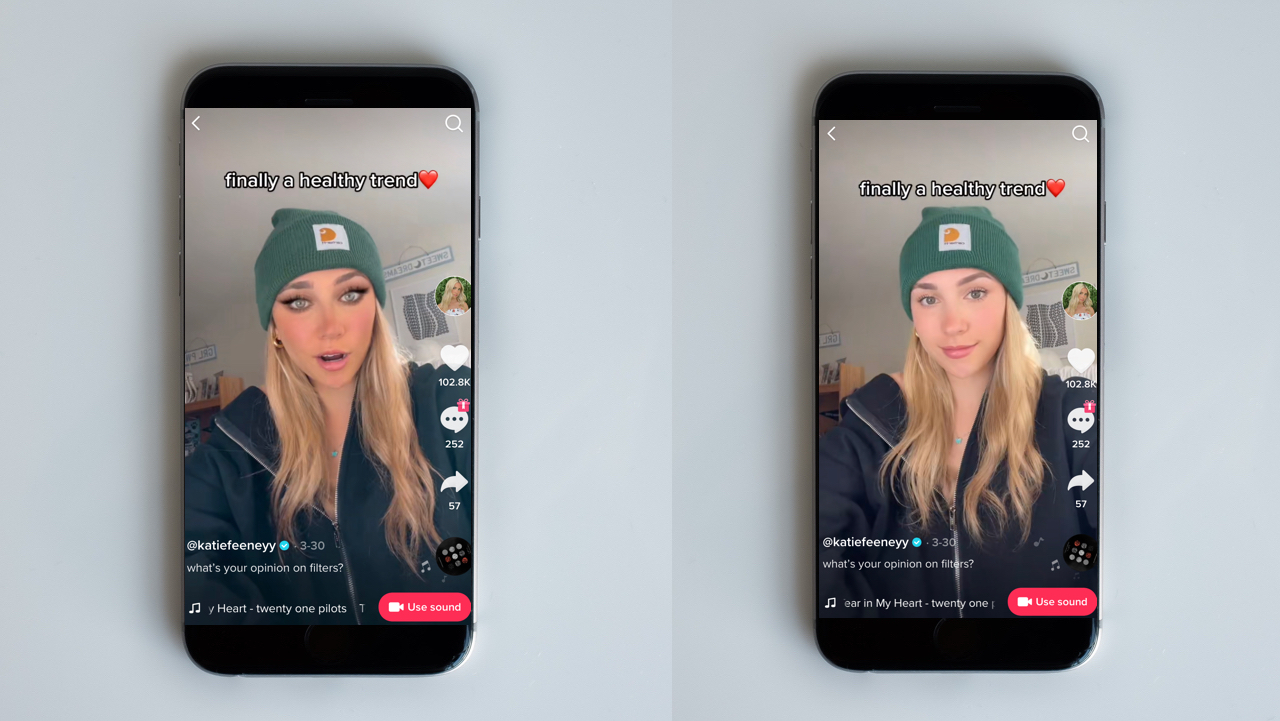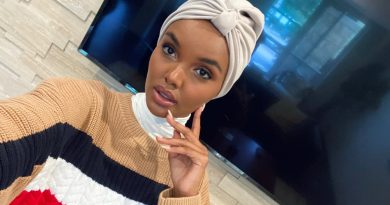Beauty Brands Becoming BFs – WWD
Ping goes your cell phone, indicating a new message laden with emojis and full of advice. The text could have come from an old friend, but it was in fact sent by a different, more recent type of pal: a beauty brand.
Welcome to the age of peer-to-peer marketing, a tactic that gained traction amid the coronavirus crisis.
Brands, particularly direct-to-consumer indie labels, have been focusing on creating their own personas and bringing consumers, especially Millennials and Gen Zers, into their worlds sooner and differently as the COVID-19 pandemic rages, aspirations shift and digital becomes ever more omnipresent.
That demographic is practically online 24/7, and so brands need creatively to leverage being just one click away.
“The younger generation wants brands to be a platform for them to be amplify their voices even more,” said Cecilia Gates, chief executive officer of Gates Creative agency.
That leads brands to ask themselves new questions. “How do they become a peer themselves, get that emotional connection to the consumer? How do they share the same values and interests, create conversations and discussions around the interests of their consumers? That’s really important,” Gates said.
Katherine Mossman, beauty and wellness industry partner at Brentwood Associates, said consumers and brands are converging in a mind-meld.
“Their social presence is a representation of who they are, and it’s a representation of their values,” she explained. “Because they’re supporting brands online, they’re effectively supporting their own values; the brand is something that’s representative of them.”
Further, Millennials and Gen Zers love sharable content, don’t want to follow trends but develop them, and use platforms such as TikTok and Instagram Reels as content creators themselves.
Industry experts point to Glossier as a pioneering beauty brand that changed the discourse with consumers. Its founder Emily Weiss started with the editorial platform Into the Gloss in 2010 that spoke to people like a friend and became the launch pad of her beauty brand.
Milk Makeup, Girl Boss Cosmetics and Revolve are also considered among the frontrunners.
“There are a lot of direct-to-consumer, female-founder brands [that] leveraged this idea of the female founder and being part of their journey, talking in a sort of intimate way with audiences via Instagram,” said Lucie Greene, futurist and founder of Light Years consultancy.
Content now takes many guises and is key to making the relationship between brand and consumer chummier.
At Trinny of London, for instance, founder Trinny Woodall invites other well-known women — an entrepreneur such as Bobbi Brown or actress like Elizabeth Hurley — for videoed interviews, then comments about the spots tumble in online, erasing the boundaries between user- and brand-generated content.
“Commentary is content,” noted Greene, explaining that stems from the video gaming world. Twitch, for one, began as a platform for commentary on gaming but has moved into different verticals, such as beauty.
“We’re shifting more towards a sort of communal type of entertainment,” continued Greene, who also sees content and community as becoming inseparable.
It’s about how one empowers this community to help the brand become the people and the people be the brand, added Gates.
Meanwhile, consumers are gaining earlier entrée into some brands.
“The most influential new brands are starting out from the outset being driven by their audiences,” said Greene. “The appeal of that is feeling like you have some ownership, or a part of it.”
A case in point is Merci Handy, the six-year-old French brand billed to “create practical and colorful everyday cosmetics, using clean ingredients and rainbow extracts,” where building affection with consumers is paramount.
“When the relationship is built on trust, it’s so easy to involve them in product development, in marketing campaigns,” explained Louis Marty, cofounder and ceo of Merci Handy.
He lovingly refers to his fans with the familiar “tu” rather than more formal “vous” — French words for “you.”
Incorporating consumer feedback came organically to the entrepreneur, who often evolves strategy from ideas generated from the fan base. Most recently, Merci Handy took to Instagram to ask its friends for ideas for the next collaboration, following a two-and-a-half-year tie-in with Disney.
Upward of 1,000 suggestions poured in (Harry Potter, Supreme, Rihanna were among proposals). The brand uses a funnel-formed vetting process, collecting answers to queries posted on its social platforms, narrowing them down, then inviting a much smaller group of people into the office or to hop on a video call to discuss thoughts.
Currently, 30 are testing out a shower gel for two months before giving the brand input.
“We have amazing things coming [in 2021], thanks to our community,” said Marty.
Today, it is not only about pushing content, but rather creating interaction online, something he loves. And the strategy is bearing tangible results.
“It’s why we are the second brand in the world with the highest engagement rate [online],” said the executive. (Florence by Mills, Millie Bobbi Brown’s beauty line, is the first.)
On TikTok, Merci Handy has about 350,000 followers, but its engagement rate is huge – with at least 50,000 to 100,000 views per video. Ditto for Instagram, where the brand has almost a half-million followers, with an engagement rate of approximately 25 percent.
“We want to create this link [with people],” said Marty.
Half of Merci Handy’s community is in France, with the top three international markets being the U.K., U.S. and Australia.
Sales are booming, too – the brand’s revenues grew by 2.3 times in 2020, and its website garners 30 percent recurring orders.
“Social listening is key,” said Marty.
“What we’re seeing now are brands that literally live and breathe this brand-friend concept,” said Kathryn Bishop, foresight editor at consulting and trend forecasting agency The Future Laboratory, ticking off as examples labels such as The Inkey List and Q&A, which exchange directly with consumers.
The Inkey List launched an #askINKEY campaign and rolled out a beauty school for the everyday consumer. Meanwhile, as its name suggests, Q&A sets out to make natural skin care simple and accessible, allowing people to ask the brand questions directly.
“Like they’re your friend, to giving you a bit of skin-care advice,” said Bishop, who highlighted other labels, such as Starface (with acne-fighting patches) and Disco (skin care for men), that take a playful, tongue-in-cheek approach on social media, similar to how people might chat with their buddies.
“You feel like you’re having a conversation,” said Bishop. “They’re posting questions on their Instagram stories to their audience, almost in a way that you might just be having a chat with a friend.”
Youth to the People also refers to its consumers and employees as “fam,” “family” or “friends.”
“We built the brand that way,” said Greg Gonzalez, a brand cofounder.
From the outset he and the other cofounder Joe Cloyes were personally sending messages to YTTP’s community members, forging friendships with them.

From Youth to the People
Courtesy of Youth to the People
“One thing that’s so amazing about skin care and beauty is there’s the passion that everybody has,” said Gonzalez. “Around new products, ingredients, packaging. And so we get to share those discussions with them.”
“Building these friends as community has helped us to evolve what we do within product development, storytelling and marketing,” continued Cloyes.
That recently has been the case for the brand’s new energy serum. Some fans of YTTP tried the product for four weeks and did before-and-after photos and videos that were used in a campaign.
“It gives a different view on the product, not just from us,” said Gonzalez.
The brand’s product nomenclature taps into the young demographic’s aspirations.
“What’s your 18-year-old ambition or dream?” asked Mossman. “Even their products reflect that: the ‘Dream Mask.’ They tease out those hopes and aspirations, and give their consumers a forum to express them.”
Like YTTP, Dirty Lemon is among brands texting its community of pals. The wellness beverage company has people order products by text and then sends texts back to them.
Concurrently, beauty brands are increasingly tapping into the do-good zeitgeist, sharing the passion of Millennials and Gen Zers — especially — along the way.
“That is just meant to be built into how you act, without being this big declarative thing,” said Bishop. “We’ll see the whole-purpose mind-set filter more into: ‘Are we doing enough for everybody?’”
Gonzalez explained that at YTTP: “We have different pillars in our brand that people are passionate about: skin-care ingredients, sustainability, activism. We’re interested in making sure that we’re able to reach the people who are passionate about what we are.”
The brand has just created its first philanthropic fund, which aims to donate $1 million by 2024 to what it calls diverse and inclusive local, national and international organizations fighting poverty and hunger. It is YTTP’s first of three intersectional giving funds.
Philanthropic organizations, even smaller ones concentrated on local areas, with a direct impact take priority.
“We look at them across many different areas, but [they should have] a lot of alignment with our brand values,” said Cloyes. “So, food, water and shelter are basic human rights, and that’s something we’re super passionate about.”
Diversity is a focus, as well, so the brand is helping bolster opportunities for youths in the BIPOC and LGBTQIA communities.
“Our goal is to always do as much as we can behind the scenes, working with and learning from people. And as we build out this platform with our organization, hopefully create change outside of just skin care,” said Cloyes. “That’s something we learned from my grandmother, our aunts — our whole family.”
“Everything that happened this year, they’ve had an active voice in it,” said Mossman, of YTTP. “And they’ve given their consumers an active voice.”
Also on the philanthropic front, in the U.K. during the pandemic, Hershesons launched Zoom hairstyling appointments and donated the proceeds to charities. These sessions ended up serving another purpose, too.
“They reported that quite a large majority of these chats didn’t even end up discussing hair — they were a chance for people to have a chat with their stylist and talk to someone,” said Bishop, calling the phenomenon “shifting it into this friend zone.”
Friends help their buddies grapple with complicated subjects, including body positivity and inclusivity.
Industry experts point to Selena Gomez’s Rare Beauty as having a clear purpose — to bring awareness to mental health — making the brand into an advocate.
“Something important for Gen Z is the perfection in the imperfect,” said Mossman. “That’s the centerpiece of this brand, which is: You’re rare.”
Its Rare Impact Fund has made a pledge to raise $100 million for mental health services for people from underserved communities over the next decade.
Male supplements brand Hims launched group therapy sessions on Zoom during the pandemic.
“It was this shift from broadcast brand communications,” said Bishop. “You’re building a kind of relationship with that brand.”
Hims & Hers sells products and operates a mental health platform.
It’s important a brand’s raison d’être is clear. To that end, this month, Merci Handy plans to roll out on its platforms a culture book, which outlines the company’s vision; social mission, to fight against cyber-bullying, and purpose, to make the ordinary extraordinary.
“This is also the role of a friend,” said Marty.
Still, friends can be tricky, and beauty executives say their biggest challenges today as they scale include remaining authentic, and in tune and in touch with their audience.
Tapping into consumers’ zeitgeist is all about evolution.
“The brands of the past were talking at you,” said Mossman. “It was about authority. The brands of today are like: ‘We’re figuring this out together.’ Those that represent a values-based evolution really resonate.
“What is your friend? It’s somebody who’s on a journey with you,” she said.
For more, see:
EXCLUSIVE: Escada Fragrances Launching Branded Island Takeover in Animal Crossing
Inside Youth to the People’s L.A. Headquarters
Beauty M&A Pipeline Said Strong, Despite Coronavirus





